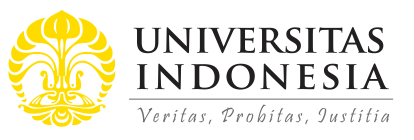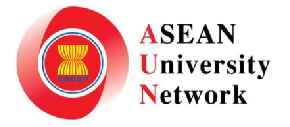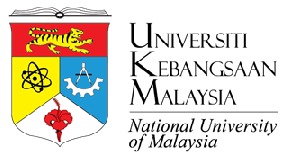
Abstract
This study aims to explore the benefit of introducing the accounting and finance knowledge for micro and small business enterprises, in particular during the time of the coronavirus disease 2019. The COVID-19 pandemic has severely affected the micro and small enterprises. A large number of industries faced the risk of lower sales, which in turn badly hit their businesses. To assist micro and small business entrepreneurs in maintaining sustainability by improving their bookkeeping skills by using digital applications, a team of lecturers from Universitas Mercu Buana, Indonesia, and Universiti Sains Malaysia, Malaysia, collaborated on socialization activities and interactions. The lecturers held virtual or online workshops for 75 micro and small business entrepreneurs, whose majority of the participants have a high school educational background. The results of this study show influential benefits experienced by the participants, who also stated that the activity and social interaction must be held regularly as a guide and to provide them with updated information. The activities also motivated them to continue working hard to sustain their business. This study demonstrates that such programs can provide support for the sustenance of micro and small businesses.
References
Afriyadi, A. D. (2020, August 23). Tembus rekor! 46 perusahaan raksasa bangkrut gara-gara Corona. detikfinance. https://finance.detik.com/berita-ekonomi-bisnis/d-5143179/tembus-rekor-46-perusahaan-raksasa-bangkrut-gara-gara-corona
Alam, M., Murad, W., Hanifa, A., & Ozturk, I. (2016). Relationships among carbon emissions, economic growth, energy consumption and population growth: Testing Environmental Kuznets Curve hypothesis for Brazil, China, India and Indonesia. Ecological Indicators, 70, 466–479. https://doi.org/10.1016/j.ecolind.2016.06.043
Anggraeni, W. C., Ningtiyas, W. P., & Nurdiyah, N. (2021). Kebijakan pemerintah dalam pemberdayaan UMKM di masa pandemi Covid-19 di Indonesia. Journal of Government and Politics (JGOP), 3(1), 47-65.
Astuti, P. B., & Mahardhika, A. S. (2020). COVID-19: How does it impact the Indonesian economy? Jurnal Inovasi Ekonomi, 5(02), 85–92. https://doi.org/10.22219/jiko.v5i3.11751
Bennett, N., & Lemoine, G. J. (2014). What a difference a word makes: Understanding threats to performance in a VUCA world. Business Horizons, 57(3), 311–317. https://doi.org/10.1016/j.bushor.2014.01.001
Bhuiyan, A. K. M. I., Sakib, N., Pakpour, A. H., Griffiths, M. D., & Mamun, M. A. (2020). COVID-19-related suicides in Bangladesh due to lockdown and economic factors: Case study evidence from media reports. International Journal of Mental Health and Addiction, 19, 2110–2115. https://doi.org/10.1007/s11469-020-00307-y
De Amorim Braga, F. J., De Souza Silvestre, F., & Oliveira, U. R. (2018). Analysis of individual micro-entrepreneur vision from the perspective of financial management. Brazilian Journal of Operations & Production Management, 15(2), 182–192. https://doi.org/10.14488/bjopm.2018.v15.n2.a2
Debata, B., Patnaik, P., & Mishra, A. (2020). COVID-19 pandemic! It’s impact on people, economy, and environment. Journal of Public Affairs, 20(4), 1–5. https://doi.org/10.1002/pa.2372
Deepika, D., & Chitranshi, J. (2020). Leader readiness of Gen Z in VUCA business environment. Foresight, 23(2), 154–171. https://doi.org/10.1108/FS-05-2020-0048
Drucker, P. (2002). Managing in the next society. Routledge.
Horney, N., Pasmore, B., & O’Shea, T. (2010). Leadership agility: A business imperative for a VUCA World. People & Strategy, 33(4), 33–38. http://luxorgroup.fr/coaching/wp-content/uploads/Leadership-agility-model.pdf
Insight-Center. (2020). Digitalisasi UMKM di Tengah Pandemi Covid-19. Katadata.Co.Id. https://katadata.co.id/umkm
Jayani, D. H., & Fitra, S. (2020, May 21). Berapa tenaga kerja yang terserap dari UMKM di Indonesia? Databoks. https://databoks.katadata.co.id/datapublish/2020/05/21/berapa-tenaga-kerja-yang-terserap-dari-umkm-di-indonesia
Kementrian Perindustrian Republik Indonesia. (2014, September 17). Penggunaan produk dalam negeri minim. Berita Industri. https://kemenperin.go.id/artikel/10421/Penggunaan-Produk-Dalam-%20Negeri-Minim
Kiranti, D. E., & Nugroho, L. (2022). Dampak Pandemi Covid-19 Terhadap Pengangguran serta Jabatan Kerja Kritis. Ekonomi, Keuangan, Investasi Dan Syariah (EKUITAS), 3(3), 335–341.
Kuckertz, A., Brändle, L., Gaudig, A., Hinderer, S., Morales Reyes, C. A., Prochotta, A., Steinbrink, K. M., Berger, E. S. C. (2020). Startups in times of crisis–A rapid response to the COVID-19 pandemic. Journal of Business Venturing Insights, 13. https://doi.org/10.1016/j.jbvi.2020.e00169
Lestari, D., & Rachman, A. (2020, September 8). Sebanyak 30 juta UMKM bangkrut akibat pandemi COVID-19. VIVA.co.id. https://www.viva.co.id/berita/bisnis/1300248-sebanyak-30-juta-umkm-bangkrut-akibat-pandemi-covid-19
Lidwina, A., & Fitra, S. (2020, May 18). Apa layanan digital yang sering digunakan selama COVID-19? Databoks. https://databoks.katadata.co.id/datapublish/2020/05/18/apa-layanan-digital-yang-sering-digunakan-selama-covid-19#
Limanseto, H. (2021, April 28). Dukungan pemerintah bagi UMKM agar pulih di masa pandemi. Ekon.go.id. https://ekon.go.id/publikasi/detail/2939/dukungan-pemerintah-bagi-umkm-agar-pulih-di-masa-pandemi
Madichie, N. O., & Nkamnebe, A. D. (2010). Micro-credit for microenterprises? A study of women “petty” traders in Eastern Nigeria. Gender in Management, 25(4), 301–319. https://doi.org/10.1108/17542411011048173
Nugroho, L. (2014). Challenges Islamic microfinance (evidence from Indonesia). EJIF- European of Islamic Journal, 1(1), 1–7. https://doi.org/10.13135/2421-2172/793
Nugroho, L., & Chowdhury, S. L. K. (2015). Mobile banking for empowerment muslim women entrepreneur: Evidence from Asia (Indonesia and Bangladesh). Tazkia Islamic Finance & Business Review, 9(1), 83–100. https://tifbr-tazkia.org/index.php/TIFBR/article/view/79
Nugroho, L., & Husnadi, T. C. (2016). Maslahah and strategy to establish a single state-owned islamic bank in Indonesia. Tazkia Islamic Finance and Business Review, 10(1).
Portes, A., & Landolt, P. (2000). Social capital: Promise and pitfalls of its role in development. Journal of Latin American Studies, 32(2), 529–547. https://doi.org/10.1017/S0022216X00005836
Ratten, V. (2020). Coronavirus (COVID-19) and entrepreneurship: Changing life and work landscape. Journal of Small Business and Entrepreneurship, 32(5), 203–516. https://doi.org/10.1080/08276331.2020.1790167
Sharma, A., Dua, S., & Hatwal, V. (2012). Micro enterprise development and rural women entrepreneurship: Way for economic empowerment. Arth Prabandh: A Journal of Economics and Management, 1(6), 114–127. http://www.prj.co.in/setup/business/paper45.pdf
Silva, P. C. L., Batista, P. V. C., Lima, H. S., Alves, M. A., Guimarães, F. G., & Silva, R. C. P. (2020). COVID-ABS: An agent-based model of COVID-19 epidemic to simulate health and economic effects of social distancing interventions. Chaos, Solitons and Fractals, 139, 1–37. https://doi.org/10.1016/j.chaos.2020.110088
Sudirman, A., Alaydrus, S., Rosmayati, S., Syamsuriansyah, S., Arifudin, O. Rijal, K., ..., Nugroho, L., (2020). Perilaku konsumen dan perkembangannya di era digital. Widina Bhakti Persada. https://repository.penerbitwidina.com/publications/314622/prilaku-konsumen-dan-perkembangannya-di-era-digital#cite
Utami, W., & Nugroho, L. (2019). Going concern studies of government social enterprise in Indonesia (Village Government Enterprises Case/Bumdes-Lebak Region, West Java Province-Indonesia). International Journal Entrepreneurship and Management Inquiries, 3(5), 191–206. https://dergipark.org.tr/en/pub/ijemi/issue/50843/630253
Williams, C. C., Martinez-Perez, A., & Kedir, A. M. (2017). Informal entrepreneurship in developing economies: The impacts of starting up unregistered on firm performance. Entrepreneurship Theory and Practice, 41(5), 773–799. https://doi.org/10.1111/etap.12238
Recommended Citation
Hidayah, Nurul; Nugroho, Lucky; Suharman, Harry; and Ali, Anees Janee
(2022).
Exploring the Benefit of Introducing Accounting and Finance Knowledge for Micro and Small Entrepreneurs During the COVID-19 Pandemic.
ASEAN Journal of Community Engagement, 6(2), 335-346.
Available at: https://doi.org/10.7454/ajce.v6i2.1147







